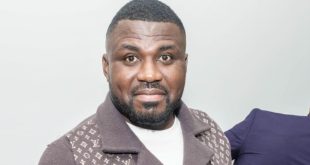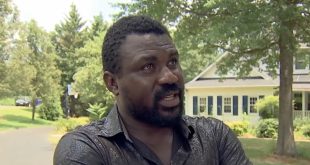Human Rights Watch | It is becoming increasingly difficult to speak freely in Cameroon.
In a decree issued on July 16, Emmanuel Mariel Djikdent, the head of the Mfoundi division, where the capital Yaoundé is situated, stated that “anyone who dangerously insults the [state] institutions or the person who embodies them,” could be banned from staying in the division. Djikdent issued this decree to “preserve public order.”
Two days later, René Emmanuel Sadi, the communication minister, issued a press release stating that “it is unacceptable for compatriots […] to use irreverent language” about the president Paul Biya “who was freely and overwhelmingly elected by his fellow citizens.”
The decree has rightly worried media professionals and opposition party leaders who have criticized it as a backwards step for the right to freedom of expression. These announcements are the latest in a series of troubling government decisions that appear to be aimed at stifling opposition and dissent ahead of the presidential elections in 2025.
In March, the territorial administration minister, Paul Atanga Nji, banned two opposition coalitions describing them as “clandestine movements.” In June, gendarmes in N’Gaoundéré, Adamawa region, arbitrarily rearrested Aboubacar Siddiki, known as Babadjo, a prominent artist and member of the National Union for Democracy and Progress (Union nationale pour la démocratie et le progrès), moments after he was released from prison following a three-month sentence for insulting a governor. In July, Cameroon’s national assembly passed a law extending its members’ term in office until March 2026, and postponing parliamentary elections scheduled for February 2025; a move opposition parties argue will make it harder for them to succeed in the presidential elections, which are still scheduled to take place in 2025. The incumbent president, Paul Biya, 91, is serving his seventh term, having come to power in 1982. He was last reelected in 2018 after a contested vote that sparked a wave of political repression.
Under international human rights law, the right to free speech may be restricted only on limited grounds, such as national security or to protect the rights of others, and even then, restrictions must be necessary, proportionate, and not discriminate. The divisional decree includes provisions that don’t meet this threshold and could be used to target critics discriminately and violate rights. As elections approach, authorities should fully respect the freedom of expression of all Cameroonians and revoke this decree.
 CameroonOnline.org Cameroon news, Actualité Camerounaise, live Web TV & Radio, World News and a lot more
CameroonOnline.org Cameroon news, Actualité Camerounaise, live Web TV & Radio, World News and a lot more



